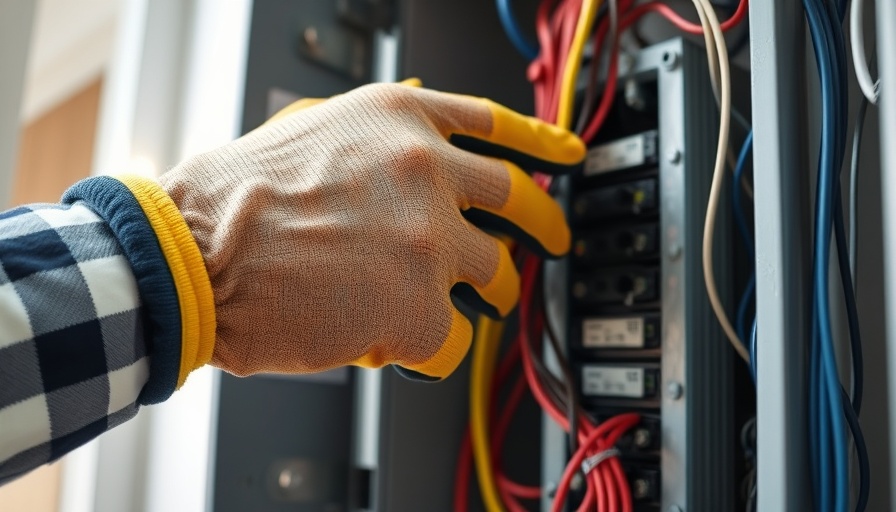
Understanding Home Electrical Safety: A Vital Concern
With over 50,000 home fires caused by electrical hazards annually, ensuring the safety of your home's electrical system is crucial. This figure highlights the potential danger that can lurk within our walls, waiting for an opportunity to become a catastrophe. The Electrical Safety Foundation International reports alarming statistics—approximately 51,000 electrical fires in the U.S. alone result in nearly 500 fatalities, over 1,400 injuries, and $1.3 billion in property damage. As the warmer months approach, electrical systems may be pushed harder due to increased usage from air conditioning and the threat of stormy weather.
Signs Your Electrical System Needs Attention
It's not uncommon for homeowners to experience overloaded circuits, especially when multiple appliances are running simultaneously. While most modern homes can handle these overloads by tripping a circuit breaker, persistent issues may indicate deeper problems within your system. An electrician can help distribute high-consumption devices across several circuits, minimizing risks such as fires or electrocution. If overloaded circuits have become a frequent occurrence, it may be time to consult a professional to evaluate your wiring.
The Importance of an Electrical Home Safety Check
If your home is over 25 years old or has gone without a professional evaluation in recent years, scheduling an Electrical Home Safety Check is a proactive approach. This comprehensive examination ensures that all components of your electrical system comply with safety standards outlined by the National Electrical Code (NEC). Upon inspection, trustworthy electricians will provide a checklist of areas needing attention and suggestions for enhancements.
Maintenance Matters
Maintaining your electrical system is essential for long-term safety. Regular testing of Ground-Fault Circuit Interrupter (GFCI) outlets, especially in kitchens and bathrooms, is vital to prevent electrical hazards. You might also consider installing whole-home surge protection devices to shield your appliances from unexpected power surges triggered by electrical storms or other events.
Conclusion: Stay Proactive for Safety
In summary, understanding and maintaining your electrical system is not merely a recommendation; it’s a necessity for all homeowners. Proactive measures such as periodic electrical safety checks and proper maintenance can significantly reduce risks, keeping your home and family safe from electrical hazards. Don’t wait until it’s too late—take these steps today to ensure your electrical system is up to speed and prepared for whatever your home demands.
 Add Row
Add Row  Add Element
Add Element 


 Add Row
Add Row  Add
Add 

Write A Comment